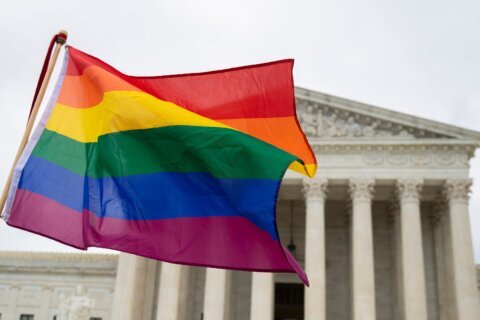By Angela Dewan and Judith Vonberg, CNN
(CNN) — It was a day in which Brett Kavanaugh did himself few favors. After the US Supreme Court nominee’s hearing on Thursday, even commentators on Fox News portrayed him as an aggressor with, as one said, “guns blazing” — the very opposite characterization the judge had hoped to achieve.
That was not only their assessment as they watched as Kavanaugh’s accuser, Christine Blasey Ford, detail her allegations of sexual assault against Kavanaugh in their high school days.
Media around the world has also zoomed in on Kavanaugh’s performance, with British news organizations in particular ridiculing Kavanaugh for his repeated denials of having high school drinking habits, and for unconvincingly painting a picture of his past as a conscientious student too consumed with sports to have time for women.
In the Opinion section of the Guardian, Marina Hyde wrote a satirical re-imagination of the hearing, in which she mocked Kavanaugh for his performance, including his moment of crying.
“I cannot stress how absolutely irrelevant things that happened in high school are. They are irrelevant, and meaningless. Do you know how much I worked out at Tobin’s house during high school? Do you know what I could bench press in high school?” she wrote, in a caricature of Kavanaugh.
The Economist took a more serious tone and criticized Kavanaugh’s lack of judgement and his “hostility towards the left,” saying it “would would make him an exceptionally divisive addition to the court.”
“Based on the day’s hearings, the justice committee should not vote to support Mr. Kavanaugh’s confirmation,” it wrote.
French TV editor: Kavanaugh ‘deserves an Oscar’
In France, BFMTV’s diplomatic editor, Ulysse Gosset, said of Kavanaugh’s performance: “He deserves an Oscar because in reality he’s on shaky ground.”
In a commentary piece for Germany’s Zeit Online, Carsten Luther criticized the entire hearing as a partisan “spectacle” in which senators had failed on several counts, including to take Ford’s sex assault allegations seriously while giving Kavanaugh the presumption of innocence.
“Political operations in Washington have reached that point where senators can meet the current US president on an equal footing: at the bottom,” Luther wrote.
“On Thursday, millions of Americans could follow live something that looked like a search for truth, but only on the surface. It was not about taking the alleged victim of a sexual assault seriously while maintaining the presumption of innocence against the alleged perpetrator until the opposite could be proved. Power and the fear of losing it were the motivations for the spectacle, which, playing out over hours, showed what divides this country.”
The US has ‘been here before’
Matthew Knott from Australia’s Sydney Morning Herald pointed out that Thursday’s hearing was a little bit of “history repeating.”
The United States had experienced a similar moment 27 years ago, he wrote, when Anita Hill was questioned by an all-male panel on her allegations of sexual harassment by Supreme Court nominee Clarence Thomas.
In 1991, Thomas said: “This is a circus. It’s a national disgrace,” Knott wrote.
On Thursday, Kavanaugh made almost the exact same comments. “This is a circus,” he said. “This confirmation process has become a national disgrace.”
Knott criticized the senators for descending into “an all-out partisan brawl” and questioned why the FBI would not be asked to investigate the allegations and key witnesses won’t testify.
“That makes possible one of two unpalatable outcomes.
“Either a female survivor of sexual assault who bravely went public with her story will, yet again, be disbelieved. Or an innocent man will have his career shredded by unproven claims not supported by corroborating evidence.”
Repercussions far beyond the US
In a blog for the magazine Marie Claire in South Africa, Zoya Pon called on South African women to take note of the Kavanaugh case, stressing that it would have implications for women in her own country and abroad.
“The outcome of the case will inevitably ripple internationally, affecting many things — not limited to — how we react to, vote, prosecute, and speak about the sexual violence affecting us politically, socially and legally.”
In a column for South Africa’s News 24, Serjeant at the Bar, who writes on legal issues, pointed to the lack of progress in addressing sexual misconduct allegations since Anita Hill’s testimony in 1991.
“If the US has hardly progressed in being earnest about alleged sexual impropriety since the Anita Hill/Clarence Thomas hearings, can it be said that the legal profession in this country has transformed itself from the white male club which has been operative since the dawn of the profession in South Africa?”
“How many male lawyers would still say, ‘You cannot take seriously that which Judge Kavanaugh did when he was a student?'”
™ & © 2018 Cable News Network, Inc., a Time Warner Company. All rights reserved.






